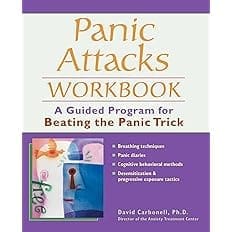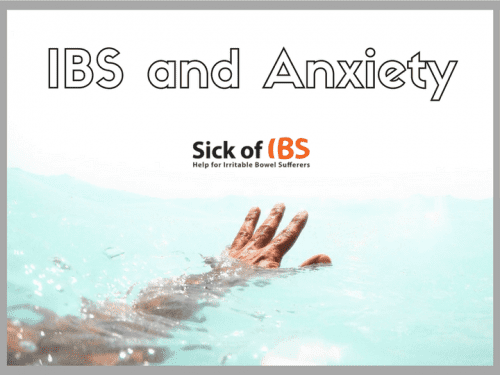Anxiety can develop alongside IBS symptoms. This type of anxiety can be felt as a general state of unease, or an overwhelming, often uncontrollable emotion.
An emotion we would prefer to never have to deal with.
This is how anxiety works
Our 5 senses let us experience the world we live in.
For every experience we have in our lives, our mind gives it a meaning.
This meaning stirs up in us a corresponding feeling, or emotion, and this leads us to react physically in a corresponding way.
If the experience is repeated several times in the same way, our minds and bodies learn to associate experiences with an emotion – and a physical reaction.
This is how we get stuck, and how reactions, even problematic ones, become automatic.
Some of the negative emotions we can experience have a specific use for us as a species. Like for example fear. They can set off the famous fight, flight or freeze reactions in order to protect us.
The only hitch here is that we can have fear of someone slamming on their brakes in front of us. But also feel fear due to having to work to tight deadlines, or needing the toilet at inopportune moments.
Anxiety is essentially fear whipped up into a whirlwind by our minds telling us that “this is not normal behavior”. We feel there is something wrong with us. We “should” be able do this. And the more we think this and fight against it, the more we reinforce our anxiety.
Anxiety and Panic Attacks
When we sense anxiety, we can experience it at different levels.
Some people experience anxiety when they feel they will not get to the toilet in time. This feels like a profoundly embarrassing experience and that we “should” be able to control our bodies. Others may face horrible recurrent panic attacks, or feel they can’t leave the house because their body will let them down. This hems them in completely.

Panic Attacks Workbook: A Guided Program for Beating the Panic Trick
In this self-help guide, David Carbonell, a professional therapist, presents the panic attack mechanism very clearly. An essential piece of advice is to breathe deeply in the face of anxiety and not fight with it.
He suggests accepting that it is essentially an uncomfortable emotion and that it will pass without harming you. This sounds counter-intuitive, but the more we can step back and let it pass, the better we feel.
He also outlines a number of self-help breathing techniques and cognitive behavioural methods that are very interesting to understand and explore.
Subconscious reactions
Anyone facing regular anxiety and panic with their IBS really doesn’t want to have to face that again. Ever.
Although we think we should know ourselves and our reactions, we really need another person to help us see ourselves. They can see what we cannot. What have become our own default behaviour patterns – and why. A qualified professional is a good option.
Our anxiety can be caused by totally subconscious reactions that we cannot access. This is particularly the case with triggers that created their foundations in our early childhood (before the age of around 8 years old).
Getting support with anxiety and IBS
In conclusion, self-help really has its limits with anxiety. We can learn to manage stress by ourselves, but triggers of anxiety lie deeper.
If you really want to make a change and step out of anxiety, you will need to enlist the help of a professional. They will be able to help you move forward and positively shift behaviour.
A qualified NLP practitioner (neuro-linguistic programming), a hypnotherapist, or a good CBT specialist (Cognitive behavioural therapy), can help break the cycle of overwhelming and unwanted reactions. They can help us relearn reactions that can help, not hinder us.
It may take a number sessions to find all the contributing triggers and rewire your behaviour patterns. (On average my clients take 6 months.)
5
